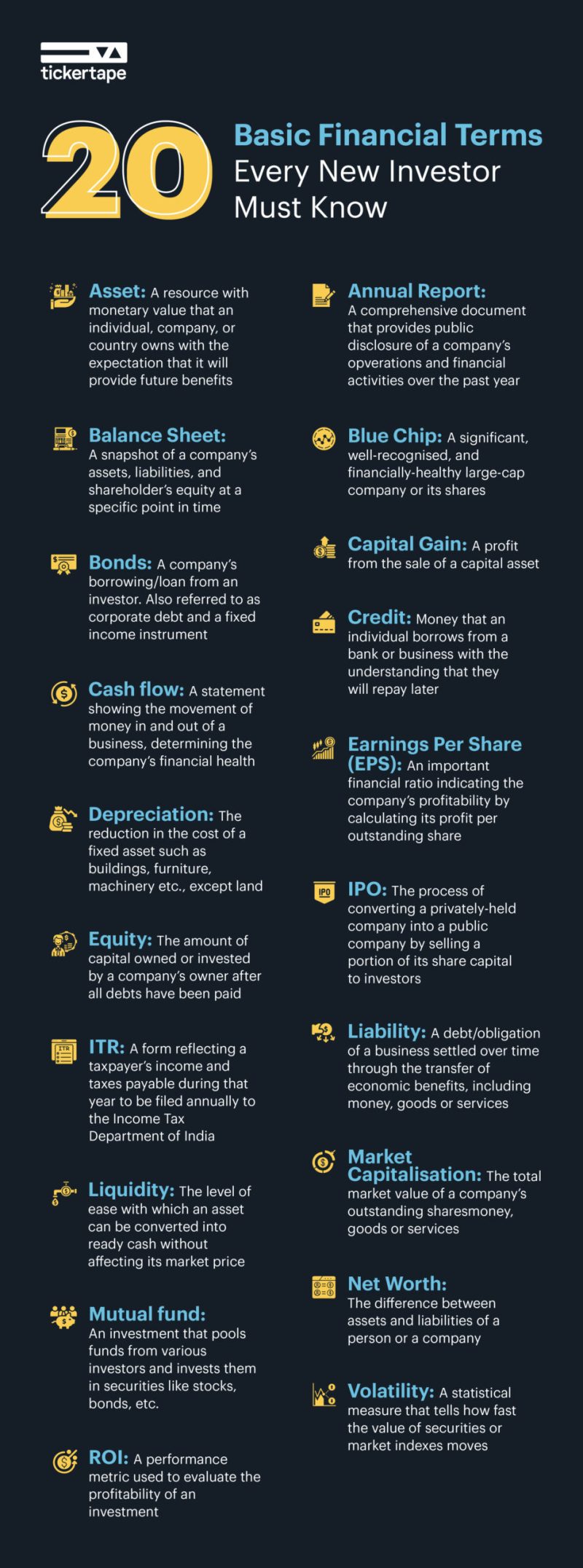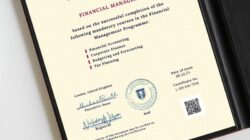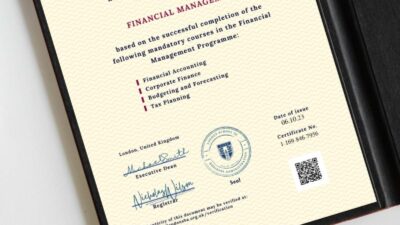Finance Vocabulary – Economic conditions like this may have an impact in your daily life. Not sure they can cause dents in your financial situation. So first learn the following 20 terms to get started cycling in the financial world.
From basic conditions such as assets, balance sheets and credit to advanced conditions such as cash flow and profit per share, this is a brief introduction to the basic conditions that new investors should pay attention to.
Finance Vocabulary

Assets are only resources with the monetary value owned by a company. They are designed to provide future benefits for companies. Assets are created or purchased to increase the company’s value or benefit.
Personal Finance Vocabulary Crossword
You can also understand them as something that can generate cash flow, improve sales or reduce expenditure. Assets report the company’s financial reports. They are roughly divided into two categories:
Annual Report is an extensive document that the company must provide all shareholders every year. It describes their operations and their financial status during the year. The purpose of the company’s annual report is to publicly reveal its operations and economic operations over the past year.
There are three basic financial reports: profit and loss declaration, cash flow analysis and balance sheet. They are complicated against each other. The balance sheet provides a snapshot of corporate assets, liabilities and shareholder capital at a certain time. (We will further study guilt and equality in this article)
The balance sheet must always be balanced, hence the name. Assets should always be equal to liabilities and shareholders’ equity. If uneven, there may be any problems, including errors or wrong data, error calculations, exchange rate or inventory errors. Therefore, in the balance sheet
English For Finance: A Comprehensive Guide To Finance Vocab And Terms
Overall, the balance sheet the company tells what it owns, what it is guilty and what it is worth as a company.
The term “blue chip” is used to represent an important and well -known company or its warehouse. As we all know, Blue Chip companies have a reasonable history of financial results. Blue Chip shares can tolerate tough market conditions and provide high returns under good market conditions.
Blue chip shares are considered to be less volatile investments, which is favorable for long -term financial goals. So if you are looking for an investment vehicle that provides consistent returns with lower long -term target risks, stocks in blue chips can be your best option.

In short, bonds are companies that borrow/borrow from investors. The borrower (company) uses this money to operate, while the investor gets investment interest. Bonds are also called corporate debt (things that companies are guilty) and interest instruments.
Financial Literacy Vocab Word Scramble
Companies and governments at all levels use bonds to borrow money. It is worth noting that the market enables lenders/investors to sell their bonds to another lender. The benefits of bonds are fixed returns, low risk and volatility, tax benefits and tax benefits. On the contrary, the disadvantages of bonds include huge investment requirements, lower liquidity compared to shares and other risks such as credit and inflation risks.
In short, capital gains indicates an increase in the value of the capital sold. They are generated when you sell assets or invest in more than you originally paid for. Capital gains apply to all types of assets, including investments.
The question is, do you have to pay tax on your capital gains? Ok, the answer depends. Short -term capital gains (STCG) are taxed at your regular fixed interest rate. However, long -term capital gains (LTCG) are usually taxed at lower interest rates.
As the name suggests, cash flow is an illustration showing the flow of currency in and out of the business. The reception of cash indicates inflow, while the cash consumed refer to the outflow. The term “cash flow” also describes the amount of funds generated or consumed for a certain period of time. It answers, “Where did the cash go?” your business.
Business Management Vocabulary: The Ultimate Guide To Management Vocabulary
A cash flow declaration determines the company’s financial status. Positive cash flows indicate that your company’s assets are growing where you start. However, negative cash flow is further. It is important to track your cash flow because they give you an idea of your business and if you are on your way to your goals.
The term “credit” has many meanings in the financial world. This is usually a contract agreement between the lender and the borrower. The borrower will receive money or something of value and will repay the lender later. It may or cannot include interest charged on the borrowed amount. Credit lets you/the company buy what you need now and pay for it over time.
Does that mean everyone receives credit from a regulated lender? It depends on the individual’s credibility, usually measured by credit points. It is crucial to maintain a good credit score because, together with the lender, everyone from the landlord to the insurance company checks your credit score. It tells them about your financial situation. Therefore, it is important and advantageous to maintain a good credit score.
Depreciation relates to the reduction in the costs of the fixed assets. Examples of fixed assets are buildings, furniture, machines, equipment, etc. Land is the only exception as its value is always appreciated over time. Depreciation is a key factor in taking into account tax and accounting purposes. It does not actually represent the outflow of gold.
30 Fundraising Terms And Definitions For Startups
Shares represent the share unit in the company. Revenue per share (EPS) refers to the profit per share in a company. It is one of the important financial conditions that can indicate a company’s profitability by showing how much money it earns per share.
In short, equity is the amount owned or invested by the company’s owner. This is the remaining requirement after the company’s owner pays the debt. Justice is often called the shareholders’ equity. To calculate justice, you need the company’s assets and liabilities.
Let’s consider an example: the total value of the XYZ company’s assets is RS. 80, 30,000, total liabilities are Rs. 20.00,000. Therefore the XYZ company’s interests will be,
Have you ever heard of a company published? It just means that they are launching a stock exchange listing. A first public offer (IPO) is the process of converting a private company into a public company. For this purpose, the company sold part of its equity to investors.
20 Basic Financial Terms Every New Investor Must Know
When the IPO is completed, the company’s shares will be noted and can be traded freely in the open market. As an investor, you must bid when applying for shares in a stock exchange listing. Determine the price range and the distribution of shares depends on the responses that investors have received on the stock exchange listing.
Everyone in India must pay taxes to the Indian government if necessary. Income tax return (ITR) is a form that a person sends to the Income Tax Ministry every year. It reflects the income and taxes they pay during that year.
The income you earn can come from a wide range of sources, including your salary, business profits, real estate, capital gains and interest received. Apply taxes to all these sources of income. You can fill in ITR through the online mode for a specific financial year, from April 1 last year to March 31 in the current year.

Debt is guilty or borrowed by the company. They are financial obligations and often require victims of financial interests to another company or an individual in the future.
Accounting Vs Finance: What’s The Difference?
With information on corporate debt you can determine its total liquidity and capital structure. The main classification of debts is based on their due date, for example:
There is another category of responsibility called limited responsibility, which may or will not arise based on the consequences of uncertain future events such as legal procedures.
Liquidity is the level of convenience you can convert an access to cash without affecting its market price. The most current of all assets is cash. When any asset is liquid, it means that it can easily convert cash at market prices. On the contrary, if access is fluid, it means difficulty in converting access to cash.
Liquidity positions compare a unit’s assets with their debts. With this information you can identify if a company is solvency, ie if it can fulfill its long -term debt and other financial obligations. If the company’s total assets are higher than liabilities, it means that it can repay the debt while it remains enough operating capital.
Personal Finance English Collocations • Speak Better English With Harry
Market value (usually called market value) is the total market value for the company’s shares circulating. It is one of the most effective ways to evaluate the value of a company. It is important to note here that you can only evaluate companies that are specified publicly.
In order to calculate the market value for all companies, you must know the outstanding amount











